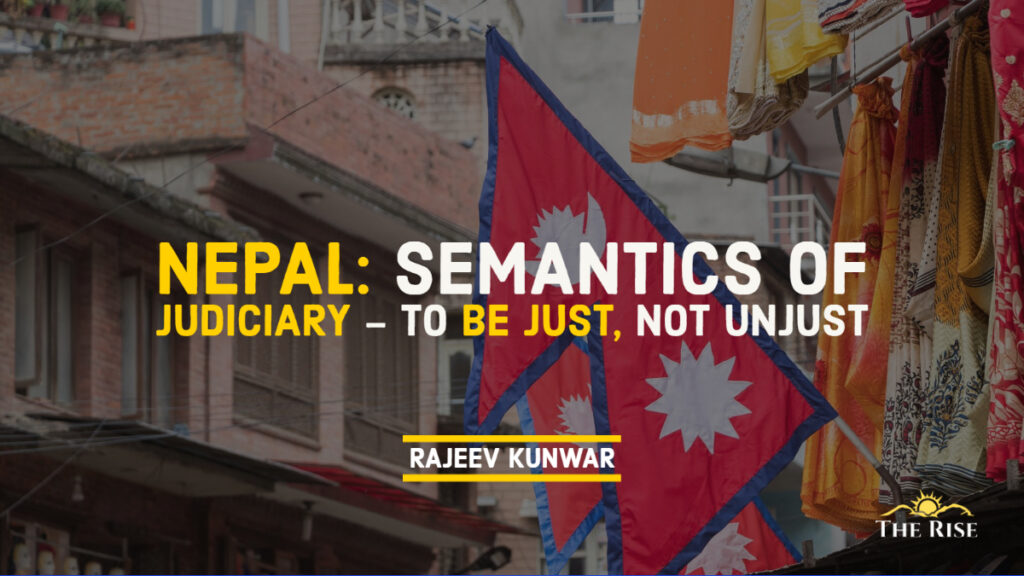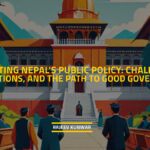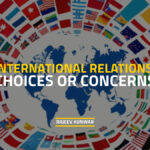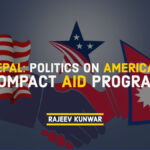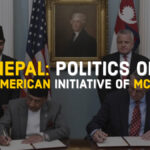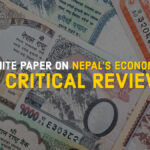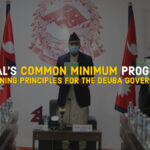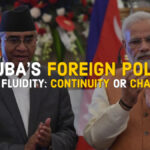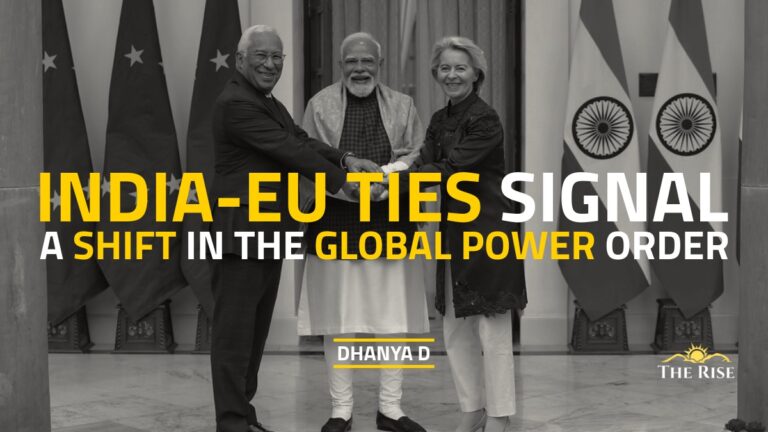Judiciary faces a challenge to its independence, impartiality, autonomy, and fairness. It is to be just and not unjust; the judiciary has to be cognizant of the constitution. Parliamentary impeachment of chief justice cases triggered after the 2007 Constitution of Nepal and a political role of Chief Justice becoming Interim Chief Executive to conduct Constituent Assembly Elections in 2013 are clear examples of why the judiciary is mired in political changes and the political subjects of interpretation of the provisions of the Constitution. Judicial review and legal activism are the domain of the Courts, and the judiciary in Nepal is the medium for monitoring, enforcing and resolving these constitutional and legal issues. In Nepal, the judiciary is a resort to observe, abide and pursue these two judicial service deliveries among many tasks to make our society just and democratic. Criticisms are rife over the conduct of justices in Nepal and it is a serious matter that needs to be paid adequate attention by those who would like to realize that justice prevails over injustice or truth prevails over falsity, or honesty/integrity prevails over vices/manipulations.
The judicial system faces a challenge to its independence, impartiality, autonomy, fairness, the rule of law, confidentiality, and securing against contempt of the court. Democracies are encountering dynamic issues, constantly changing and transforming cases of political, economic, social, and cultural nature. As politics polarizes and discourses polemicize, the judiciary does not remain immune to such activity and is impervious to influences related to the state of affairs.
A major concern about the judiciary is the ideological temptations of political opinions or pontification. In this regard, the judiciary ultimately has to repose it as being an interpreter or guardian of the constitution or the fundamental law of the land. Since the prevalent basic law is progressive, the judicial system need not be politicized to adjudicate cases of constitutional or legal nature.
Also Read: Nepal at UN: A Perspective
A chief concern is the custodian of the constitution per se can examine, explain and respond to its spirit and letters. So to be just and not unjust, the judiciary has to be cognizant of the document on a polity that acknowledges the rights, liberties, and freedom of its citizens and people and ensures a democratic, accountable, and responsible nexus of the government and the governed. When partisan interests make inroads into the judicial branch then it can dilute the sacred nature of the delivery of justice that is blind insinuating a verdict based on the law of the land.
A challenge foreseen due to the lust and invitations of political affairs would endanger the checks and balances of the branches of government in the future. It would jeopardize the modus operandi of the judiciary, making it difficult to revert or retrieve its benevolent delivery of justice and credibility of a democratic system that reposes faith in the Offices of Justice. Ethics, principles and practices generate judgement in regulating and adjudicating the rule of law. So this domain must not be touched or interfered with within its business allocation of judicial administration from politics or its unstable activities or hostile political opposition.
Also Read: Nepal: Politics on American Compact Aid Program
Judiciary with its typical origination, growth and development in Nepal has a legacy whereby its independence has been questioned and its good governance are out of the purview of parliamentary oversight causing soreness to liberal democracy. The judicial sector has been overlooked and it is one of the reasons the political sector is trying to intervene to make it either right in discourse or disturb the principles of separation of powers. A remedy to this effect is to re-energize, re-prioritize and rejuvenate the functioning of judicial apparatus and organs to maintain judicial good governance, including the execution of many reports that identify such issues, concerns and recommendations.
For example, the Constitutional Council, Judicial Council and Judicial Service Commission have the jurisdiction to oversee the constitutional appointment and constitutional process to enliven good governance as a whole and to oversee the judicial process. Only the judicial leadership which internalizes the spirit and letters of a sacrosanct constitution can uphold a conviction of its independent principles so that erratic and anarchic type of perception of public interest is contained and extirpated from media ruckus.
Also Read: Nepal: Discourse in Geopolitics
Time and circumstances are replete in the mainstream media with taints and spoils in the governance. Parliamentary impeachment of chief justice cases triggered after the 2007 Nepalese Interim Constitution and a political role of the Chief Justice becoming Interim Chief Executive to conduct Constituent Assembly Elections in 2013 are glaring examples of why the judiciary is embroiled in political change and issuing verdicts and writs on political questions of clarification on the provisions of the Constitution. Judicial review and judicial activism are the jurisdictions of the Courts and in Nepal, the judiciary is a resort to observe, abide and pursue these two judicial service deliveries to make our society just, democratic and based on civic virtues.
Criticisms are rife over the conduct of justices in Nepal. And it is a serious matter that needs to be paid adequate attention by stakeholders of the legal field – either in government or non-government entities or advocates who would like to realize that justice prevails over injustice, truth prevails over falsity, and honesty or integrity prevails over vices and manipulations.
Disclaimer: The views expressed in this article are of the author solely. TheRise.co.in neither endorses nor is responsible for them. Reproducing this content without permission is prohibited
About the author
Mr. Kunwar is a politics and international relations analyst based in Kathmandu.

